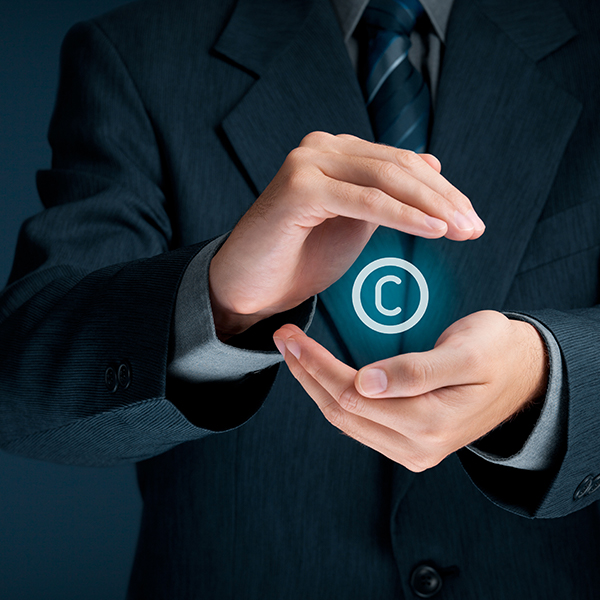Intellectual property rights
International property rights („IPR”) in Poland are strongly internationalized. It is because Poland is a party to all main international conventions regulating IPR. What is more, as the EU member Poland is a part of the EU IPR protection system.



Introduction
International property rights („IPR”) in Poland are strongly internationalized. It is because Poland is a party to all main international conventions regulating IPR (that is concerning copyright, related rights and industrial property rights). What is more, as the EU member Poland is a part of the EU IPR protection system. In consequence, many aspects of IPR can resemble these in your country, especially if you are the EU citizen. There are, however, many issues behind the horizon of international and the EU legislation.
Polish legal system provides vast protection of IPR from copyright and moral rights, through related rights, industrial property rights (like inventions, trademarks and designs) to trade secrets, databases and business names (in Polish: firma).
The Polish legal system provides multiprotection of IPR. It means that in certain situations the same infringement may be protected in many ways. For instance, there may be a case when a trademark can be protected basing on copyright (as a creative work), industrial property (if protection right for trademark was obtained) or unfair competition.
Copyright
Copyright (in Polish: autorskie prawa majątkowe) and moral rights (in Polish: autorskie prawa osobiste) are protected by the act of 4 February 1994 on copyright and related rights (in Polish: ustawa z 4 lutego 1994 r. o prawie autorskim i prawach pokrewnych).
Copyright and moral rights protect creative works. The creative work (in Polish: utwór) is a result of individual and creative human activity. It must also be established, that is possible to be perceived by someone else. This does not mean that the creative work has to be finished or fixed in a material form. Unfinished and intangible works can be protected as well.
There is no closed catalogue of creative works. If the following criteria are met, almost every type of work is protected (there are minor exceptions in the Polish authorship right act). In consequence business strategies, marketing campaigns or corporate identification can enjoy copyright protection.
Unlike industrial property rights which must be registered, copyright is created without any formalities.
Copyright protects economic interest of authors (other entitled persons). It involves among others right to reproduce, distribute, publish and broadcast the creative work. As a rule, the primary person protected by copyright is an author. He or she can however transfer or license this right to someone else.
Moral rights have non-economic character. They protect a bound between an author and his/her creative work and the author is the only one protected by moral rights. The most significant moral rights are the right to authorship (to be indicated as an author) and right to integrity (to object any action that may result in distortion of the creative work). The moral rights protection in Poland is particularly strong, especially compared with the UK and US regime.
Copyright transfer
Since copyright transfer is not regulated in international or the EU laws, knowing how to deal with this issue in Poland is particularly important.
The general rule of both transferring and licensing copyright is that a transfer (licence) involves only these fields of exploitation (in Polish: pola eksploatacji) in other words ways of using the creative work, which are expressly mentioned in a contract. That is why you must be very careful when drawing up the contract related to copyright, especially if you intend to purchase these rights.
Polish law allows to freely transfer copyright. The copyright transfer is always a part of other agreement, like sale, donation, change or contract for specific work.
In contrast to the transfer, the licence gives entitled person an authorization to exploit (for example use, distribute or reproduce) the creative work.
The Polish legal system allows for exclusive and non-exclusive licences.
The exclusive licence gives the licensee (a person who gets the licence) unshared authorization to exploit the creative work. It means that the licensor (a person who gives the licence) cannot grant this licence (in the same extent) to other persons.
Granting the non-exclusive licence, the licensor can give the authorization to exploit the creative work to unlimited number of persons.
Transfer of copyright and exclusive licence agreement must be made in writing under the pain of nullity.
Moral rights cannot be transferred, but you can make a contract on not using several moral rights, using them in a particular manner or authorizing other to use them on your behalf.
Industrial Property Rights
Industrial property rights (in Polish prawa własności przemysłowej) are protected by the act of 30 June 2000 law of industrial property (in Polish: ustawa z 30 czerwca 2020 Prawo własności przemysłowej).
The main industrial property rights are:
- Patents – the right to protect an invention (it has to be novel, industrially applicable and non-obvious)
- Protection right for utility model
- Registration right for design
- Protection right for trademark
The industrial property law protects also medicinal products (supplementary protection certificate), plant varieties, topography of integrated circuits and geographical indications.
The difference between industrial property rights and copyright is that the first ones have to be registered. It has to be done through a special proceeding before the Patent Office (in Polish: Urząd Patentowy). The industrial property rights are also temporal, some of them may be prolonged, however. To gain and prolong the protection you must pay fee.
Certain industrial property rights can be registered via Polish but also international (or regional) proceeding. Using international (regional) path gives the possibility to obtain protection outside Poland.
Like copyright, the industrial property rights can be transferred and licensed. The detailed provisions about it can be found in the industrial property law.
Computer programs
Computer programs in Poland are protected by the authorship right act. It means that they are protected by copyright. The computer programs protection is quite like other EU countries, since rules regarding computer programs are implementation of directive of 23 April 2009 on the legal protection of computer programs.
There is no definition of the computer program neither in Polish, nor the EU law. In general, the computer program is a set of instructions capable of causing a computer to perform a particular task.
It involves:
- source code
- machine code
- in certain situation flow charts
The type of software does not matter. It can be for example firmware, mobile or desktop apps and plug-ins.
To obtain copyright protection the computer program must meet the same requirements as other creative works (made by a human, individual, creative and established). It means that, as a rule, simple and repetitive source code cannot be protected.
The computer program protection does not consist of GUI, functions of the computer program in and of itself and ideas that lie behind the program. They may however be protected otherwise (as a “normal” creative work in case of GUI and as a trade secret).
Computer programs protection resembles the protection of literal creative works (“they are protected as literal creative works”).
There are some significant differences, among others:
- who is entitled to copyright to the computer program created by an employee,
- scope of moral rights,
- range of fair use,
- specific rights connected with the computer programs (such as right to demand destroying technical means aimed at removal or bypassing technical measures of the program’s protection).



